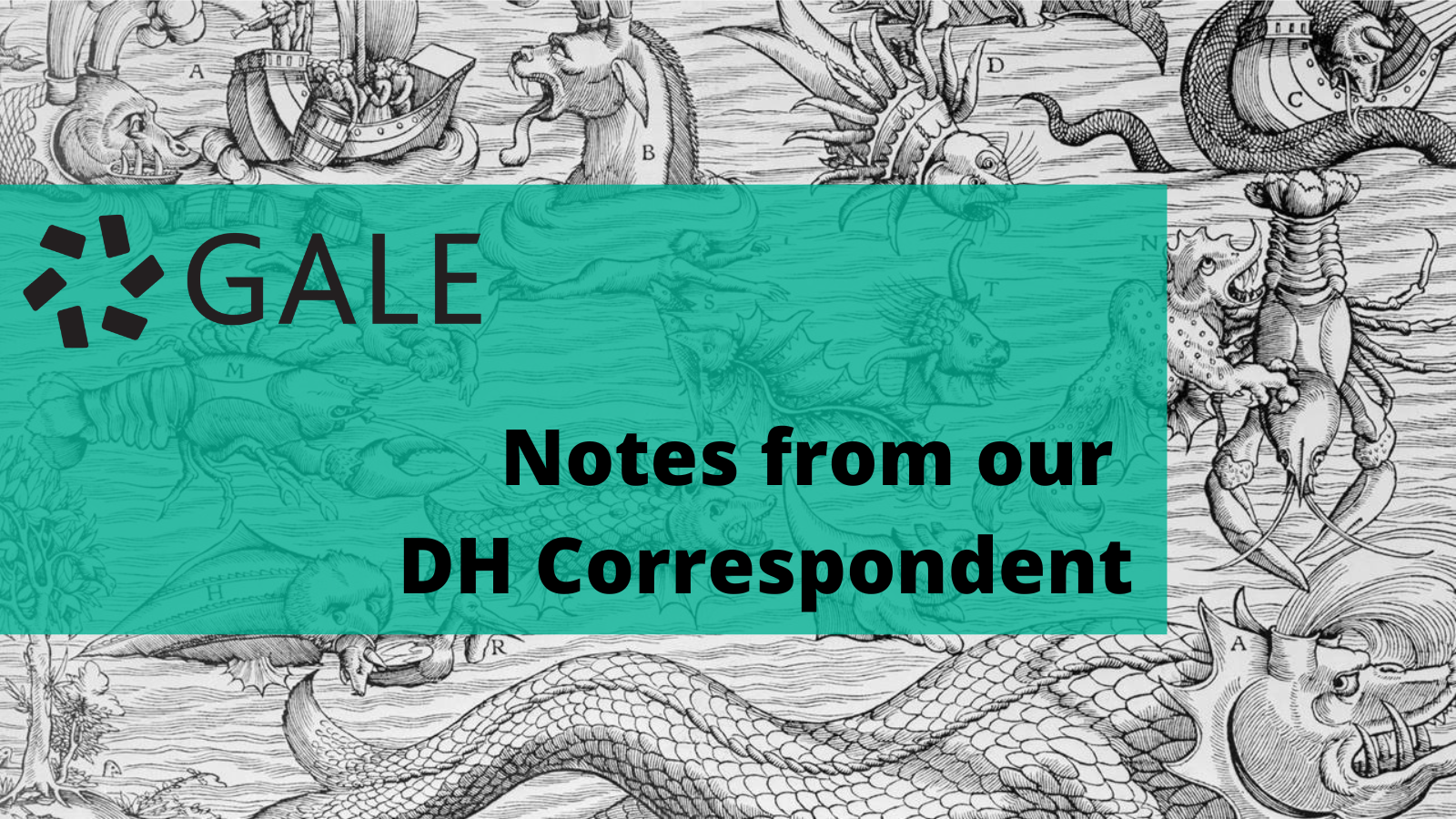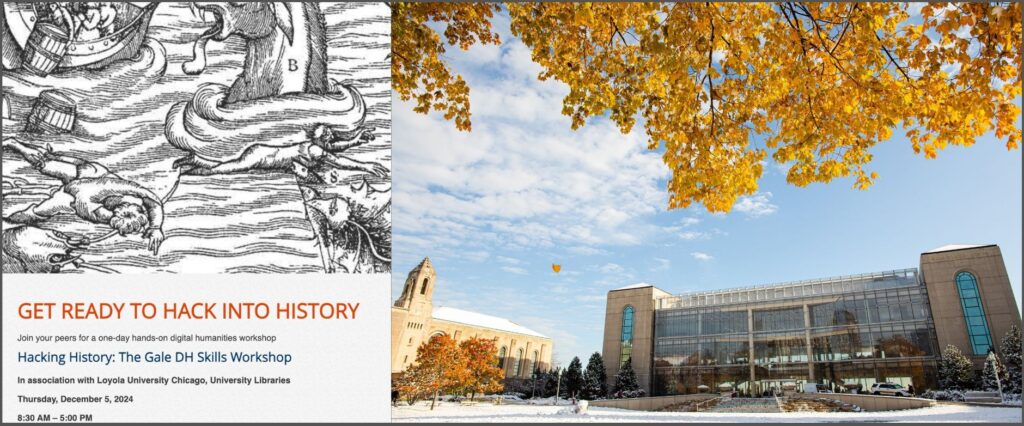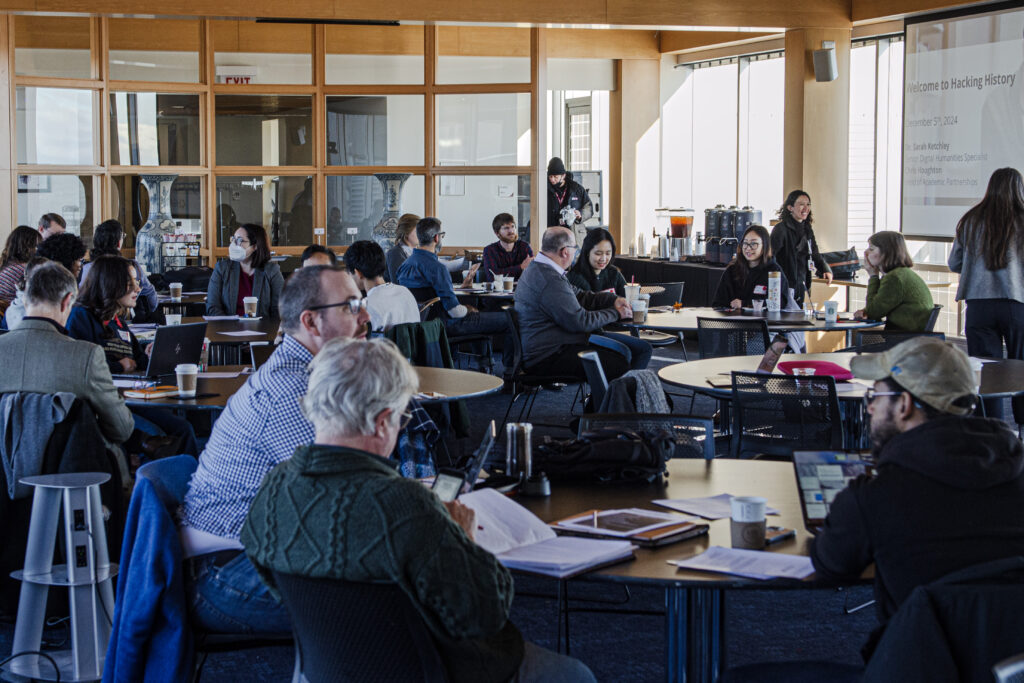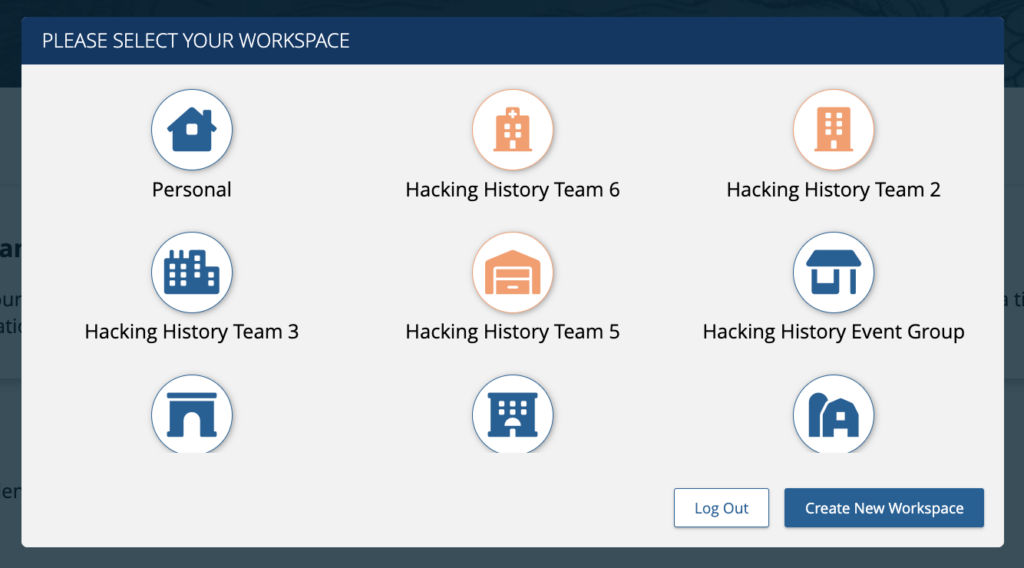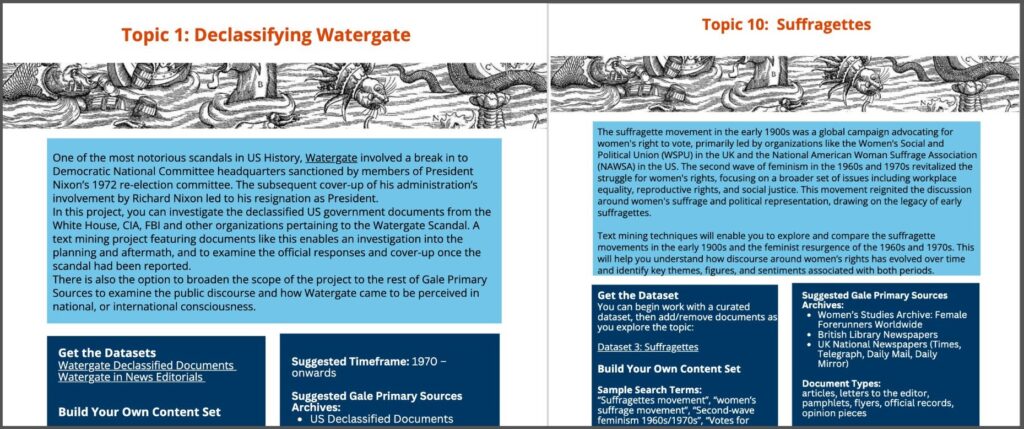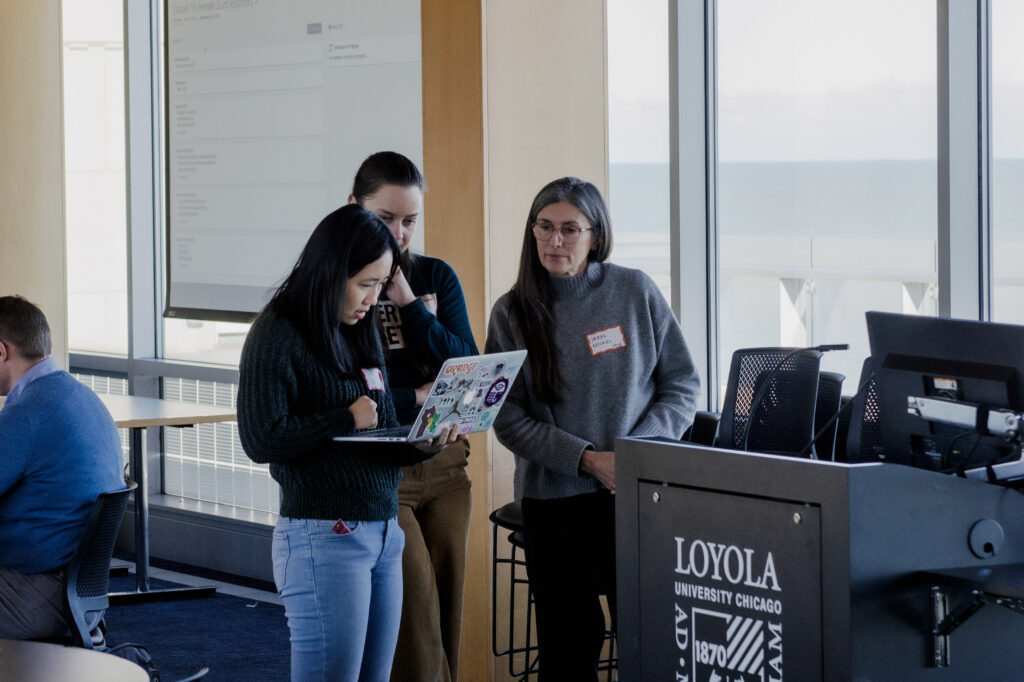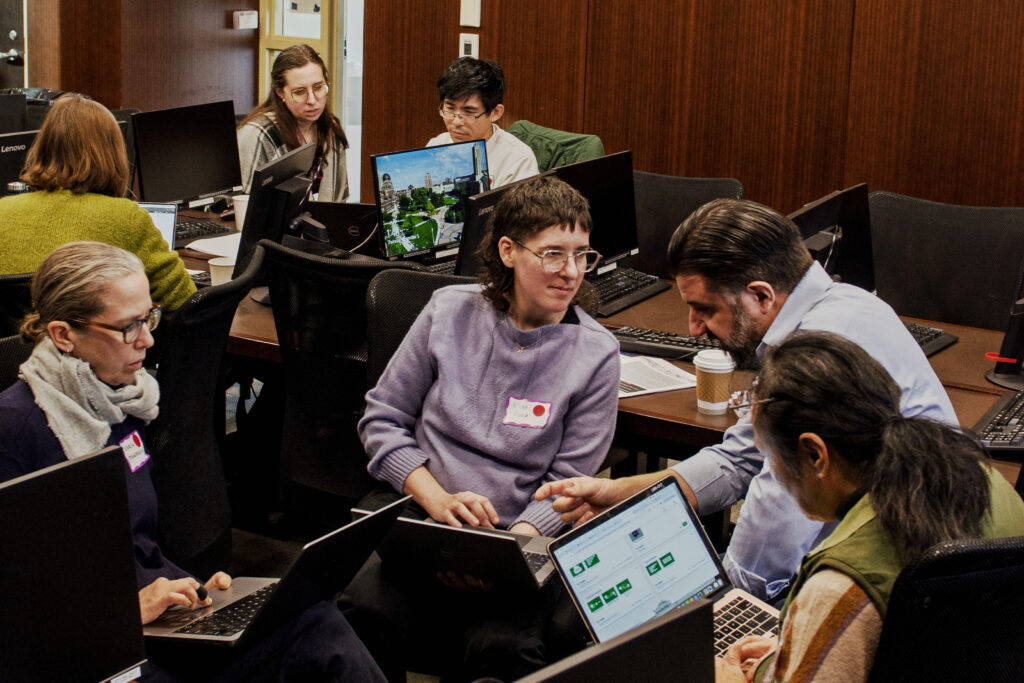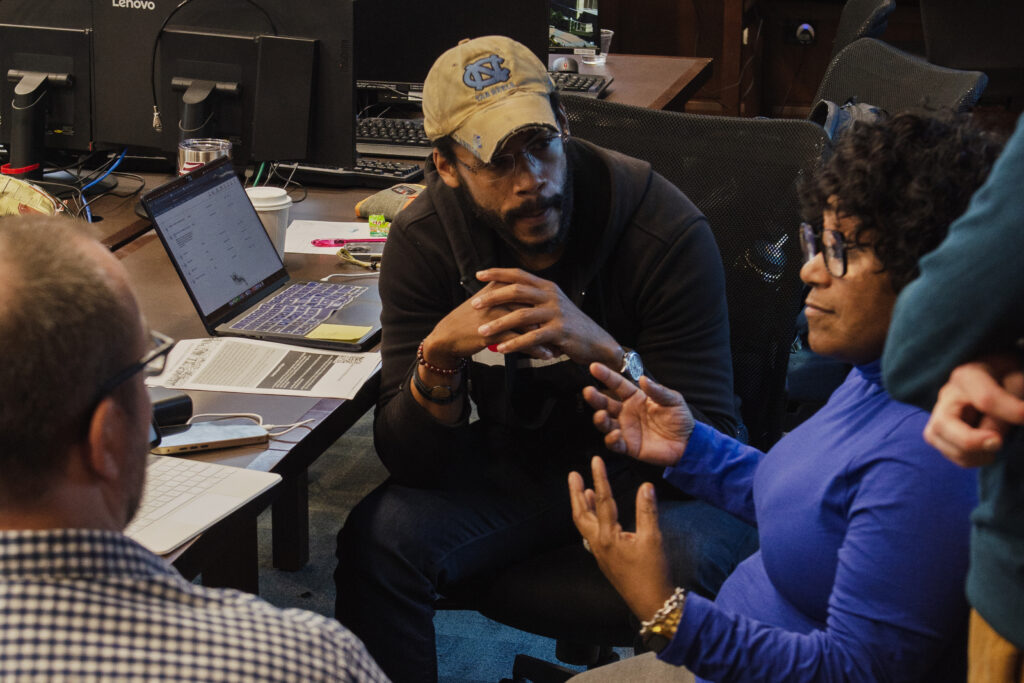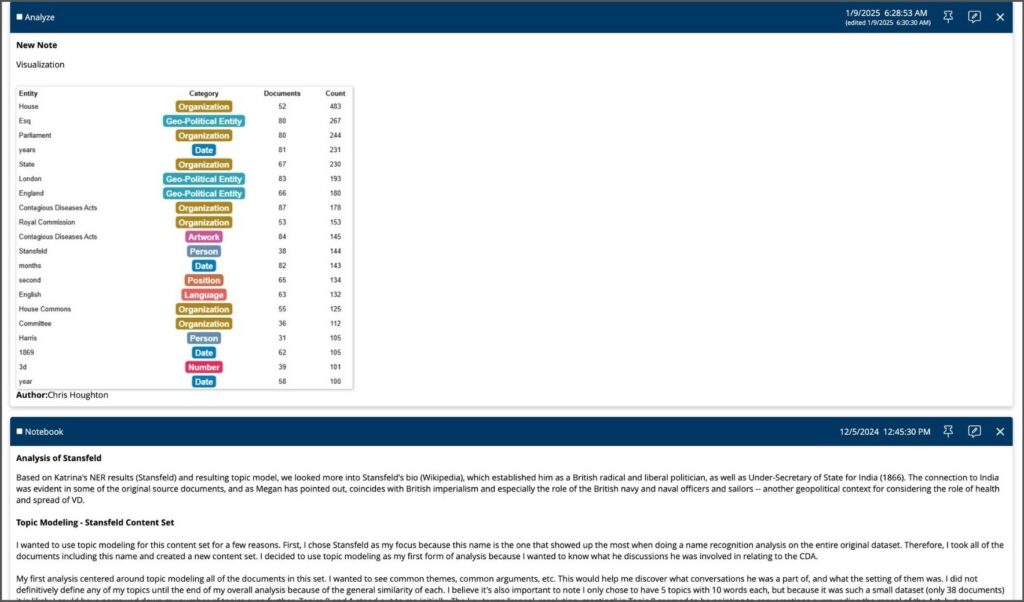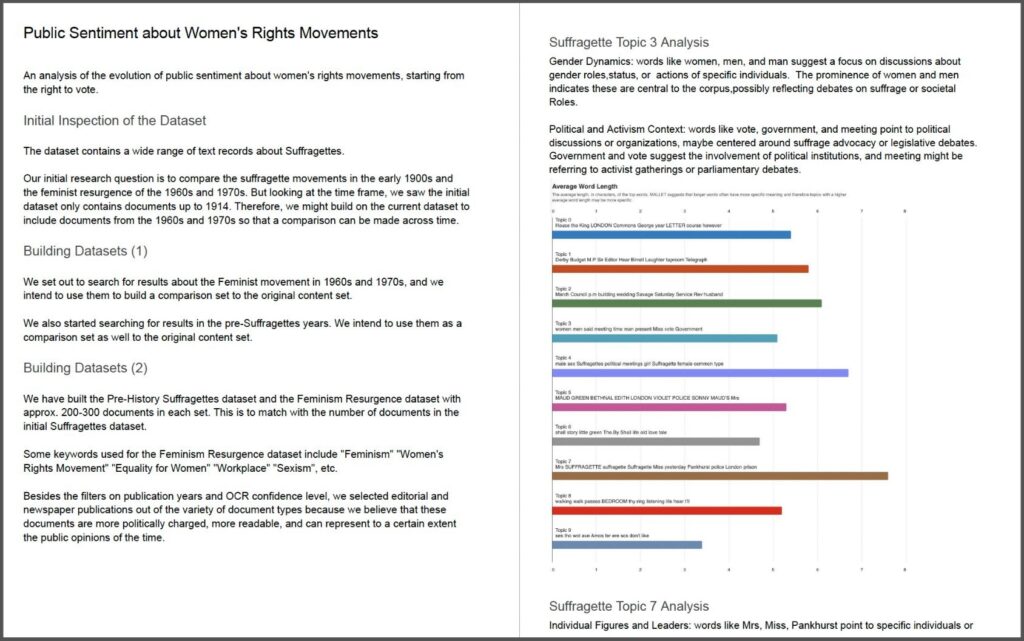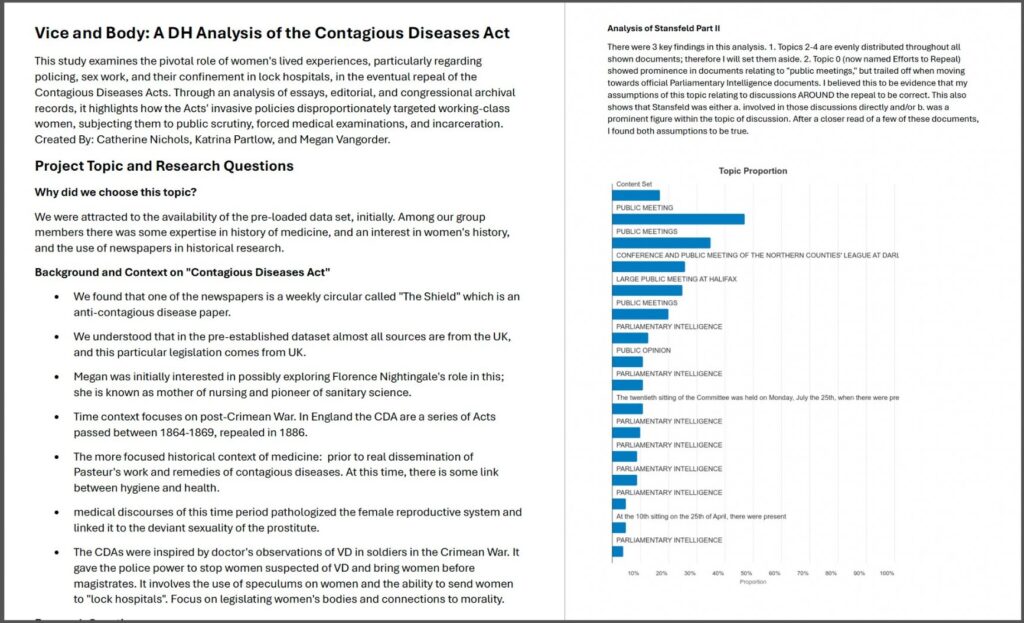│By Sarah L. Ketchley, Senior Digital Humanities Specialist │
On 5th December 2024, the Gale Digital Scholar Lab team, in association with Loyola University Chicago, University Libraries, offered a hands-on workshop freely available to researchers, educators, librarians, and anyone interested in exploring innovative ways to improve their digital humanities (DH) research skills. “Hacking History” brought together a diverse community for a day of collaboration, conversation and collegiality – along with some friendly competition between teams to create digital projects over the course of the day.
Hacking History
The event kicked off with introductory remarks and a keynote by Dr. Catherine Nichols, who discussed archival work, slow scholarship and introducing DH to undergraduates at Loyola, using Gale Digital Scholar Lab as one of the tools used by students in class.
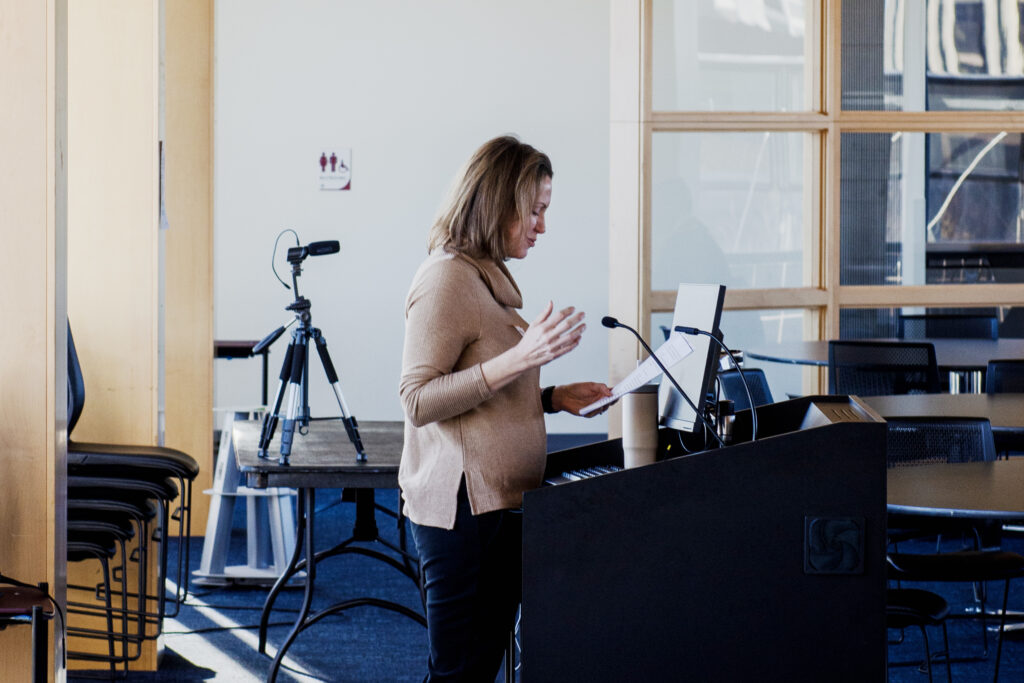
Attendees self-identified their level of DH experience prior to the event and joined a “New to DH” or “Experienced with DH” track for the day. Within these two tracks, participants were placed in teams of 3-5 for collaborative hands-on work with the end goal of creating a DH project using the Lab throughout the process.
Groups in Gale Digital Scholar Lab
The Groups functionality in the Lab is ideal for any classroom or research scenario that includes collaborative work. The group spaces can be created in advance of the course or event, and participants receive an email invitation to join relevant workspaces, which may include a group for the entire event or class, and/or a group for a smaller team subset.
For Hacking History, the large group workspace was ideal for providing an initial Lab orientation, before participants shifted into their individual team workspaces. We also used Padlet to share content and instructions, and asked participants to share their introductions and bios in this space so that all participants could see.
Topic Choices
Teams were provided with a selection of topics to choose from, also available as pre-curated datasets in the Lab. We created ‘topic one-pagers’, which provided historical context, information about the dataset, suggested archives, research questions and digital tools.
Providing starter content sets and simple prompts or talking points is a great way to generate discussion and brainstorming around potential research questions, especially in groups that may not have previously worked together, or who are working with unfamiliar data. These starter datasets kickstart the process of data curation – team members can add or remove documents to the base corpus of data to ensure that the material is relevant, based on the research direction the group have decided to pursue.
Developing Professional Connections
The Gale product team was on hand throughout the day, and worked closely with attendees to answer questions, share expertise, and gather feedback to shape future developments. The advanced group was led by Dr. Sarah Ketchley, Sr. DH Specialist, while Chris Houghton, Head of Academic Partnerships, gave the new to DH group a thorough grounding in the workflow and theory of the Lab. In both groups, the focus was on developing practical strategies and methodologies to enhance DH work in a collegial and informal atmosphere.
The pedagogical approach for those new to DH and those with some experience shared common threads: all participants received an introductory overview of the workflow and features of the Lab at the beginning of the day. For the beginners, this was reiterated in the smaller group setting, with plenty of time for q&a during this introduction, before participants embarked on their own team projects in the Lab. The approach for those with some experience in DH skills focused on weaving discussions of digital project management, pedagogy, python notebooks, and in-depth tool engagement with plenty of time for dedicated hands-on work.
Gale Research Showcase
Over the course of the day, participants learned how to leverage the digital tools in the Lab to uncover insights, build compelling arguments, and streamline their research process.
They made extensive use of the Notebook feature in the Lab to document their curation and analysis choices and pulled this information into the Projects workspace where they built out a selection of engaging research projects ready for submission to Gale Research Showcase.
“A Real Delight!”
In the words of one of the Hacking History participants: “It was perhaps the most fun I’ve ever had at a professional development day. It was a real delight!” We’re already looking forward to the next event!
If you enjoyed reading about the Gale DH Skills Workshop check out these posts:
- Exploring Sentiment in Historical Texts With Gale Digital Scholar Lab’s New “Sentiment by Timeframe” Visualisation
- Using Large Language Models for Post OCR Correction of Nineteenth Century British Newspapers
- A Two-Way Relationship – Collaborating with Scholars in the Gale Fellowship Program

